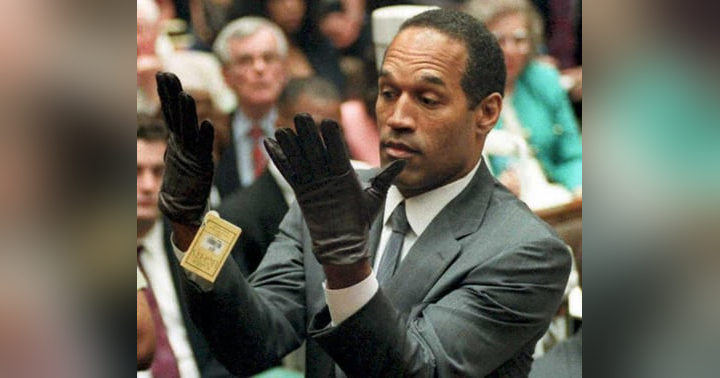Dennis Rader’s Secret Obsessions: How BTK Was Born

Beige Boy in a Gray World
Before he called himself BTK. Before he was binding, torturing, or killing anyone... Dennis Rader was just a quiet, awkward kid growing up in Kansas. And not the kind of quiet that screams “deep thinker” or “future CEO.” We’re talking unsettlingly bland. Suburban camouflage. He was the type of person you’d talk to for 15 minutes, walk away, and immediately forget existed. If beige had a face.
He was born March 9, 1945, in Pittsburg, Kansas, then moved to Wichita—where he’d eventually launch one of the most twisted double lives in criminal history. Oldest of four boys, raised by two working-class parents who were, by all accounts, decent people. His dad worked long hours for the phone company. His mom handled everything else. It wasn’t an abusive home. It also wasn’t exactly warm and fuzzy. Dennis would later say he felt neglected. Not in a “locked in the basement” kind of way, more in a “my parents had four kids and a mortgage and didn’t revolve the entire universe around me” kind of way.
Now, most of us would process that by… I don’t know, going to therapy or journaling passive-aggressively. Dennis, on the other hand, developed a deep obsession with control. Like very early on. While other kids were tying their shoes, he was fantasizing about tying people up.
And here’s the thing, he didn’t stand out. Teachers called him average. Friends? Barely. He wasn’t a bully. Wasn’t bullied. He was just… there. Watching. Smiling. Collecting the kind of disturbing thoughts you hope stay buried in bad fiction, except for him, they didn’t.
He started hurting animals… because of course he did. It’s practically Serial Killer Kindergarten. He also started drawing women in bondage in his school notebooks and indulging in violent sexual fantasies by the time most kids are just figuring out multiplication. This was long before porn was a click away, so these weren’t things he stumbled on. These were things he created.
Dennis Rader didn’t become BTK overnight. He marinated in it. Quietly. While mowing lawns and going to Sunday school. And that—that is what makes him terrifying.
Because monsters that look like monsters? Easy to spot.
The ones that blend in with the wallpaper? You don’t see them coming until they’re already inside the house.
And in Dennis Rader’s case… he installed the locks.
The Birth of the BTK Fantasy Club (Membership: 1, Unfortunately)
By the time Dennis Rader hit his awkward pre-teen years, most kids were crushing on classmates or hoarding baseball cards. Dennis? He was hoarding mental images of women tied up and helpless. His version of a hobby was playing out torture fantasies in his head like it was a choose-your-own-nightmare adventure. And the worst part? He enjoyed it. He didn’t stumble into these ideas after seeing something traumatic. He created them. Like a deeply broken little filmmaker directing scenes in his brain that no sane person would ever want to watch.
And while we’re here, let’s talk about what he would later call his “dark side,” because Dennis couldn’t resist turning his own evil into a brand. He named it. Gave it structure. Built a whole mental filing cabinet around it. He called it “Factor X,” which sounds like a failed Mountain Dew flavor but was, in his words, the invisible force that drove him to kill. He used it like a get-out-of-accountability-free card: “It wasn’t me, it was the mysterious psychological boogeyman living rent-free in my soul.” Sure, Dennis. And I’m the Tooth Fairy.
The truth? Factor X was just Dennis giving himself permission. He didn’t hear voices. He didn’t dissociate. He just liked the idea of having total control over another human being. Not just emotionally—physically. Tied up. Terrified. Powerless.
And it started way before any actual crimes. He’d rip out magazine photos of women and sketch over them—adding ropes, gags, bindings. He created little fantasy scripts, playing out abductions and murder scenarios in his head while walking through the aisles of the grocery store or sitting in church. All while smiling and shaking hands with people who thought he was just another quiet guy in the pew.
And this is where the danger started to take shape—not in action, but in obsession. The line between fantasy and reality wasn’t blurry for Dennis. He knew the difference. He just didn’t care. The fantasy wasn’t enough anymore. It was just… the trailer. He wanted to see the full-length feature play out in real life.
So while the rest of the world saw a slightly weird kid growing into a slightly weird adult, what was actually happening was the slow, deliberate construction of a killer’s worldview. One where people were props, violence was justified, and control was the goal.
The guy didn’t snap.
He planned.
He escalated.
And nobody had a clue.
Because Dennis Rader wasn’t the type to scream in your face.
He was the kind to whisper in your ear… right before the bag went over your head.
Masking Like a Pro
Here’s the thing about Dennis Rader: he didn’t look like a villain. He looked like a guy who would file a noise complaint against his own children. The kind of person you’d forget existed while he was still talking. And that forgettable-ness? That was his superpower.
By high school, Dennis had already built a double life. On the surface, he played by the rules. Joined the Boy Scouts. Helped out at church. Wore that slightly-too-pressed button-up like he had something to prove to his reflection. If he smiled any harder, his face would’ve cracked—but people love a smile, even when it’s fake. Especially when it’s fake. That whole “he was such a nice guy” thing? Weaponized.
And the mask worked. Nobody was digging into his notebooks. Nobody was asking why he stared just a little too long. He wasn’t the kind of weird that sets off alarms. He was the kind of weird that blends into casseroles at the church potluck. Just helpful enough. Just polite enough. Always just enough.
He wasn’t athletic. Wasn’t popular. Wasn’t a total outcast either. He was that guy at school whose name you know you’ve heard, but can’t place. He didn’t bully. He didn’t fight. He just… existed. In the background. Watching. Cataloging people like they were case files he hadn’t gotten around to yet.
That’s the part people miss. Rader didn’t wear a mask after the crimes started. He was building it decades before he ever picked a target. The church kid. The grocery store stock boy. The Boy Scout who knew all the knots. He was curating a persona like some kind of psychopath social media manager—only it was all offline, and the “likes” he was chasing had nothing to do with approval. It was about keeping everyone blind.
Because Dennis Rader knew exactly what he looked like to the outside world: safe. Unremarkable. Average.
And that was the whole point.
He didn’t want to be the monster in the woods. He wanted to be the guy waving from the porch while the monster slipped in through the back door.
The Military, The Marriage, The Mask Gets Tighter
After barely scraping his way through high school and briefly attempting college—where he flunked out so fast it was basically a drive-thru experience—Dennis Rader needed a reset. So, in 1966, he joined the U.S. Air Force. Because nothing says “I’m totally not fantasizing about murder” like voluntarily signing up for four years of strict rules, pressed uniforms, and access to classified things.
And here’s the kicker: the military loved him. He followed orders. Kept his bunk neat. Didn’t rock the boat. He spent time in Japan, Korea, Greece, and Turkey—traveling the world on Uncle Sam’s dime while his imagination kept building the kind of horror reels that would make a therapist retire early. There’s no record of him committing crimes while enlisted, but you can bet those long, quiet nights overseas were filled with the same twisted thoughts he’d been nursing since childhood. Only now, he had discipline. Structure. Routine. A sharper mask.
When he got out in 1970, Dennis came back to Wichita, and things almost looked normal. He enrolled in community college. Got a part-time job. Then—because even serial killers need to cosplay as emotionally available humans—he met and married Paula Dietz in 1971. She was a bookkeeper. Devoutly religious. Soft-spoken. Basically the human embodiment of a library whisper.
To her, Dennis was a little stiff but dependable. He showed up to church, talked about wanting a family, and knew how to fix things around the house. To everyone else, he was the guy who waved too long when saying goodbye. But still—nothing that screamed “this man will eventually mail taunting letters to the police using his own nickname like a dollar-store Zodiac.”
He took a job as a meat department guy at a local grocery store, slicing ham by day and simmering with deviant fantasies by night. Still not enough. Still restless. So he upgraded to something even more ironic: a technician at ADT. Yep—the company that literally helps people prevent home invasions. Dennis Rader, future serial killer, was walking into people’s houses with a clipboard and a smile, installing the systems they thought would protect them. That’s not foreshadowing. That’s full-blown stand-up-comedy-level irony… minus the laughs.
Meanwhile, the fantasy life didn’t slow down. It evolved. He started writing scripts. Mapping ideas. Stalking strangers. Trying to find the “right” victim. All while going to church potlucks and taking his wife out for Friday-night burgers like a human Pinterest board titled “Harmless Dads of the Midwest.”
This wasn’t a man breaking down. This was a man building up. Adding layers. Reinforcing the mask with every good deed, every polite smile, every neighborly nod.
And behind it all was the same voice in his head whispering:
“Not yet. But soon.”
Getting Educated in Not Getting Caught
So by the mid-70s, Dennis Rader had the wife, the job, the starter home, and the whole “upright citizen” costume pressed and ready for daily wear. But none of that quieted the monster he’d been feeding since childhood. It just dressed it up in khakis and a tucked-in polo.
Rader wasn’t trying to fix his dark impulses—he was trying to sharpen them. Strategize them. And what better way to prep for a future in serial murder than enrolling in a criminal justice program at Wichita State University? He literally went back to school to study how not to get caught.
While most students were cramming for midterms and half-assing their way through law enforcement electives, Dennis was taking notes like he was auditing the “Build-A-Killer Workshop.” He wasn’t there for a diploma—he was collecting intel. Learning about forensics. Law enforcement procedures. Victim profiling. And all the tiny gaps in the system that someone like him could exploit.
This wasn’t a guy losing control. This was a guy planning. Carefully. Patiently. Like a spider knitting a web one thread at a time, waiting for the right moment to start pulling strings.
And speaking of strings—he didn’t just sit in class. He started acting out his fantasies in secret, escalating from daydreams to real-world rehearsal. He’d stalk women around town, sometimes following them home. He’d jot down license plates. Take notes on routines. He called them “projects.” Just normal errands… with the minor addition of a stalking binder.
These weren’t crimes yet. But they were blueprints. He was doing dry runs. Tinkering with the logistics. He didn’t just want to kill—he wanted to orchestrate. Control everything. From the moment he picked a target to the moment their life ended. That fantasy he’d been feeding for decades? It was getting impatient. And Dennis wasn’t just going to obey it—he was going to honor it. Like some deranged Eagle Scout badge ceremony.
And while all this is happening, the world still saw him as the same boring guy who complained about trash pickup schedules and mowed his lawn diagonally for “maximum curb appeal.” His coworkers knew him as responsible. His wife thought he was just a little rigid. He still went to church. Still led Cub Scouts. Still smiled way too much in photos.
But inside? The countdown had started. He had the fantasy. He had the knowledge. And now, he had the plan.
All he needed was a house with an unlocked door.
The World’s Most Dangerous Suburban Dad
By the start of 1974, Dennis Rader had everything he thought he needed to keep the monster fed. A wife who didn’t ask questions. A toddler at home. A steady job installing security systems for ADT—again, seriously, the irony writes itself. A criminal justice degree in progress. A reputation for being helpful, polite, and aggressively average.
But none of it was working. The fantasies weren’t cutting it anymore. Writing fake scripts, sketching bondage scenarios, driving around neighborhoods and watching women through binoculars—he’d already done it all. He wanted to upgrade. Not in his mind. In real life. The fantasy had grown roots. It was evolving into something that wanted out. And Dennis? He didn’t just listen—he started taking notes.
He started calling these pre-murder obsessions his “projects.” Like he was putting together a science fair diorama, but instead of papier-mâché volcanoes, he was mapping out families. Women. Routines. Escape routes. He stalked them. Catalogued them. Gave each one a code name and assessed their “value,” which is a serial killer way of saying “how easy would it be to overpower, bind, torture, and kill this person without messing up my schedule?”
He referred to his impulses as something outside of himself—Factor X. A demonic force he claimed had infected him like a virus. Which, let’s be clear, is one hell of a convenient excuse when what you actually are is just a control-obsessed sadist who’s been daydreaming about domination since before he hit puberty. But Dennis didn’t want to be just a killer. He wanted to be a myth. A persona. A name the media would say out loud.
And on January 15, 1974, he made himself one.
The Otero family lived on Edgemoor Street in Wichita. Five people. A normal home. Normal day. And on that morning, Rader picked up his “hit kit”—a bag filled with rope, tape, plastic, and every single ounce of his fantasy life, weaponized. He walked out of his house, locked the door behind him, and headed to theirs.
He’d been watching them. Planning. He knew the dad would be home. He knew the mom would be, too. And he knew they had kids. He didn’t care. Because for Rader, this wasn’t about who they were. It was about what they represented: his need for control finally taking human form.
He knocked on the door.
And that’s where the “before” ends.
The second that door opened, Dennis Rader stopped pretending he was normal.
And BTK stepped in.

















